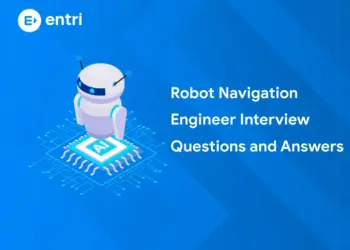Table of Contents
Key Takeaways:
- IOSH is primarily a professional membership body offering relatively short, practical health & safety (H&S) courses suited for managers, supervisors, and general workers.
- NEBOSH is an awarding body that provides more in‑depth, internationally recognised H&S qualifications (Certificates, Diplomas) aimed at those seeking to build a career in H&S.
- The correct selection is based on your position, professional goal, and time commitment. Choose IOSH if you want awareness, supervisory-level training, and faster completion. Choose NEBOSH if you aim for a dedicated H&S career, advanced roles, or international opportunities.
- For engineering students and working engineers in India or anywhere else, knowing this distinction allows you fit your degree to your industry, your employer’s expectations, and your location.
- Smart decision‑making also involves matching the credential to your company, your immediate work and your future development track.
Understanding IOSH & NEBOSH: The Organisations
What is IOSH?
The Institution of Occupational Safety and Health (IOSH) is a UK‑based chartered professional body dedicated to occupational safety and health.
- It provides training courses (e.g., Working Safely, Managing Safely) designed to raise H&S awareness across industries.
- It also provides membership levels (Affiliate, Technical, Chartered) for H&S professionals.
- Its target: those with some role/responsibility in safety, or general workforce and managers aiming for safer workplaces, rather than full‑time H&S professionals.
What is NEBOSH?
The National Examination Board in Occupational Safety and Health (NEBOSH) is a UK awarding body established in 1979.
- It develops and accredits globally recognised H&S qualifications (General Certificate, Diplomas, International versions) which are delivered via accredited training providers.
- The target audience: those aspiring to dedicated H&S roles, seeking deeper knowledge, career progression, regulatory or consulting roles in H&S.
The Key Organisational Difference
- IOSH: Membership body + provider of short courses and professional membership.
- NEBOSH: Awarding/Examination body which sets and administers qualification standards; training is delivered by external providers.
Understanding this distinction helps frame the type of commitment, recognition, and outcome you can expect from each.
Course Levels, Duration & Depth: IOSH vs NEBOSH
IOSH Course Types & Audience
- Entry/awareness level: e.g., “IOSH Working Safely” – suitable for employees across sectors who need basic safety awareness.
- Supervisory/manager level: “IOSH Managing Safely” – training for managers/supervisors to lead H&S initiatives.
- Duration: relatively short, e.g., 1 day for basic awareness; 3 days for managing safely in many cases.
- Depth: Practical, workplace‑focused, less theoretical; designed to be accessible for busy professionals.
NEBOSH Course Types & Audience
- Foundational certificate: e.g., NEBOSH General Certificate in Occupational Health & Safety.
- Diploma / advanced level: For full‐time H&S professionals, consultants, those seeking higher credentials.
- Duration & Effort: Much longer study time, detailed assignments, sometimes 80–120 hours for certificate level.
- Depth: Academic rigor, comprehensive coverage (legislation, risk assessment, hazard control, environment etc.).
IOSH vs NEBOSH: A Side-by-Side Comparison
| Feature | IOSH | NEBOSH |
| Purpose | Short practical courses + professional membership | In‑depth qualifications for H&S career |
| Ideal for | Workers, supervisors, managers wanting awareness | Those pursuing H&S roles, consultants, specialists |
| Duration & commitment | 1‑3 days typical for awareness/manager courses | Weeks/months of study, more assignments/tests |
| Depth of content | Practical, less theory, quick implementation | Comprehensive theory + practical tasks, deeper knowledge |
| Recognition & career impact | Good for awareness and supervisory roles | Gold standard for H&S professional roles |
| Membership vs Qualification | Membership + short qualification courses | Qualification body, leads to membership with other bodies |
Which One Should You Choose?
1. Assess Your Current Role & Responsibilities
- If you are a site engineer, supervisor, team lead, technician handling H&S tasks but not dedicated H&S role, then IOSH may be appropriate.
- If you aim to become an H&S officer, coordinator, consultant or head H&S in an organisation or wish to move internationally, then NEBOSH may suit better.
2. Consider Your Career Ambition
- Want to strengthen your safety awareness and boost your CV as an engineer? IOSH is accessible.
- Want to pivot towards full‐time H&S, advisory roles, international markets, regulatory or consulting roles? NEBOSH has stronger credentials.
3. Time, Cost & Commitment
- IOSH: Less time, lower cost, faster return; suitable for professionals who are busy.
- NEBOSH: Higher cost, longer time, more study load; more suitable if you have dedicated time and budget.
4. Industry & Regional Context
- Indian engineering, construction and manufacturing firms often value both but may require NEBOSH for larger or international contractor roles.
- In India, some companies accept IOSH Managing Safely for supervisory roles; for multinational firms or roles abroad, NEBOSH certification may be preferred.
- Review job listings in your region to see which qualification is preferred.
5. Combine Pathways
It’s not always one or the other. Some professionals complete an IOSH course first, then progress to NEBOSH. Doing IOSH gives you a foundation and credibility, and then you build depth with NEBOSH.
6. Practical Checklist
- Are you already in H&S role or will be soon? Then go for NEBOSH.
- Do you handle general engineering duties but want safety cred? Then go for IOSH.
- Does the employer specify certification requirements? Check job ad.
- Do you have the time and budget to commit to long study periods? If not, start with IOSH.
- Are you targeting international employment or sectors like oil & gas, mining, or offshore? NEBOSH often stronger.
Cost, Validity & Recognition in India
Cost
- IOSH courses: Shorter duration and generally lower cost.
- NEBOSH: More extensive, thus higher cost.
Check local training providers in India for current fees, study modes (online, classroom), and included assessments.
Validity & Using the Certification
- IOSH: Certificate usually does not expire, but best practice to refresh every few years.
- NEBOSH: Qualification holds long-term; you may need Continuing Professional Development (CPD) depending on membership path.
Recognition
- IOSH: Widely recognised in UK and many global organisations; useful in India too for supervisory roles.
- NEBOSH: Internationally recognised in many countries and industries, especially high‑risk industries (oil/gas, construction, offshore).
Indian Context Specifics
- Always verify local training provider is accredited/licensed.
- Check employer norms: some Indian companies may list either or both.
- If you plan to work abroad or in multinational projects, NEBOSH may provide a stronger edge.
- If you are an engineering aspirant or a working professional focusing on an Indian site/plant job domestically, IOSH still adds value.
Global Recognition
Both certifications are internationally recognised, but NEBOSH holds higher value in the professional HSE hierarchy.
| Region | IOSH Acceptance | NEBOSH Acceptance |
|---|---|---|
| UK | ✔️ Widely Accepted | ✔️ Highly Respected |
| Middle East | ✔️ Recognised | ✔️ Mandatory for most HSE jobs |
| India | ✔️ Popular Entry Course | ✔️ Preferred by Top Companies |
| Europe | ✔️ Recognised | ✔️ Advanced Requirement |
Why Engineering Professionals Should Care
1. Safety is Integral to Engineering Roles
Engineering fields (civil, mechanical, electrical, chemical) deal with equipment, processes and operations that involve risk. A safety qualification shows you understand more than just technical specs.
2. Boosting Employability
Adding IOSH or NEBOSH to your resume sets you apart: you bring safety awareness or a path to H&S competence, which many employers value.
3. Career Flexibility
With a safety credential you can move into site supervision, H&S coordination, or manage safety aspects of engineering projects.
4. Compliance & Global Projects
Indian engineers working in multinational EPC firms, offshore jobs, and construction projects abroad benefit from globally recognised H&S certifications.
5. Professional Growth
By obtaining such a qualification, you build your professional profile, not just as an engineer but as someone aware of risk, compliance, safety culture, and operational excellence.
Decision Guide for “Which One Should I Do”
- Role Assessment: Are you an engineer working on-site or plant? Supervising? Or do you want to move into H&S full-time?
- Career Goals: Do you want to become an H&S officer/consultant or want a supervisory safety qualification to support your engineering role?
- Time & Budget: IOSH = shorter, less cost; NEBOSH = longer, higher investment.
- Industry & Region: Are you working in a high‑risk sector (oil/gas, mining) or aiming for an international job? NEBOSH may be better.
- Employer Requirements: Check job ads and employer preferences.
- Future Path: You can start with IOSH and later progress to NEBOSH.
Conclusion
For engineering students and professionals, it’s not about “which is better, IOSH or NEBOSH” but “which is right for me at my current stage”.
- If you’re in a safety-aware role, you manage teams or work on location, and you require an operational-level qualification: IOSH.
- If you aim to become a specialist in H&S, want an advanced career in safety management, or are working in high‑risk/international industries: NEBOSH.
By matching your qualification selection to your duties, career objective, sector, and location, you’re making an intelligent investment in your career. Safety credentials round out your technical engineer profile.
Spend time checking course providers in your area (say India), course timings, fees, accreditation, and where you want your career to be 3‑5 years down the line. With that in mind, you’ll pick the route that cultivates both skill and possibility.
Stay safe, stay growing!
Frequently Asked Questions
What is the main difference between IOSH and NEBOSH?
IOSH is a professional membership organisation offering short, practical courses, while NEBOSH is an examining board that provides more advanced, academic-level safety qualifications.
Which is better for beginners, IOSH or NEBOSH?
IOSH is better for beginners or managers new to safety management, while NEBOSH is ideal for those aiming for professional HSE roles or international careers.
Do I need to complete IOSH before NEBOSH?
No, it’s not mandatory, but taking IOSH Managing Safely first helps build foundational knowledge before pursuing NEBOSH certifications.
Which course is more recognised globally?
Both are internationally recognised, but NEBOSH holds more weight for specialised safety and HSE positions, especially in the Middle East and Europe.
What is the duration of IOSH and NEBOSH courses?
IOSH courses take 1–4 days, while NEBOSH courses usually require 3–6 months, depending on the qualification level.
Are IOSH and NEBOSH certifications valid for life?
Yes, both certificates are valid for life. However, professionals are encouraged to stay updated with new regulations through continuous learning.
Which industries prefer IOSH or NEBOSH certification?
Construction, oil & gas, manufacturing, power, and logistics industries highly prefer candidates with IOSH or NEBOSH certifications.
How much does it cost to take IOSH and NEBOSH in India?
IOSH courses typically cost ₹10,000–₹25,000, while NEBOSH IGC costs around ₹70,000–₹95,000, depending on the training provider.
Can IOSH or NEBOSH help in getting a job abroad?
Yes. Both are recognised in the UK, Gulf, and Asia-Pacific regions. NEBOSH, in particular, is often a requirement for HSE positions in the Middle East.
Which certification should engineers take?
Engineers should start with IOSH Managing Safely for foundational knowledge and later pursue NEBOSH IGC to gain deeper expertise and global career opportunities.













